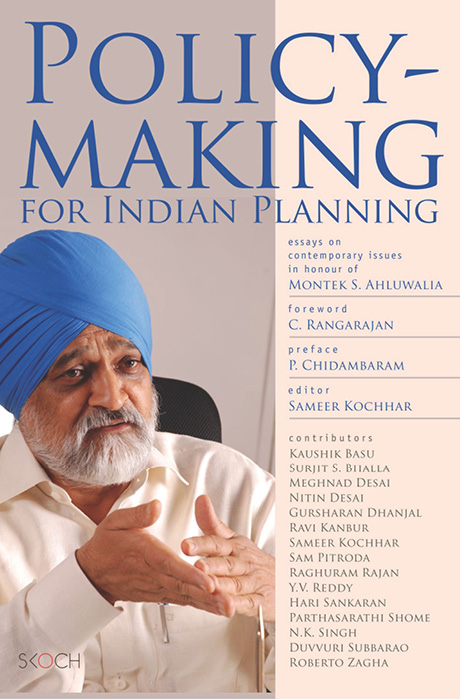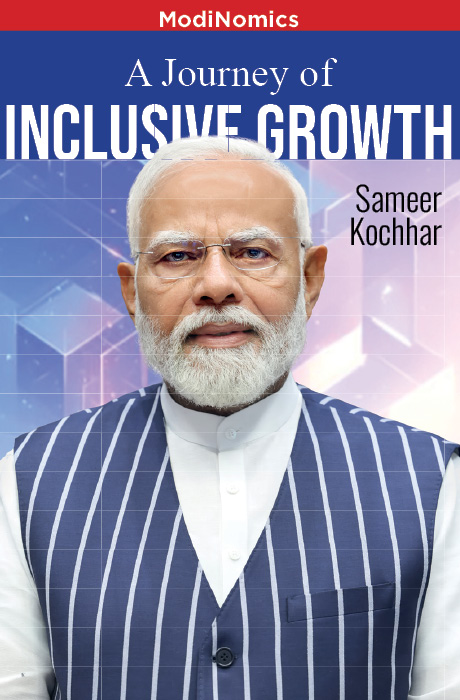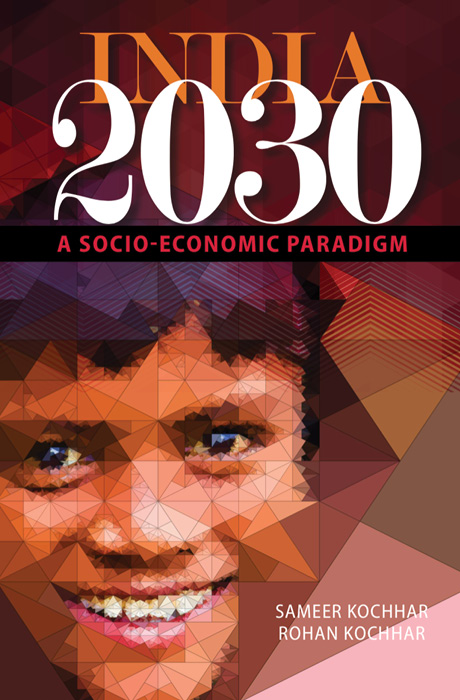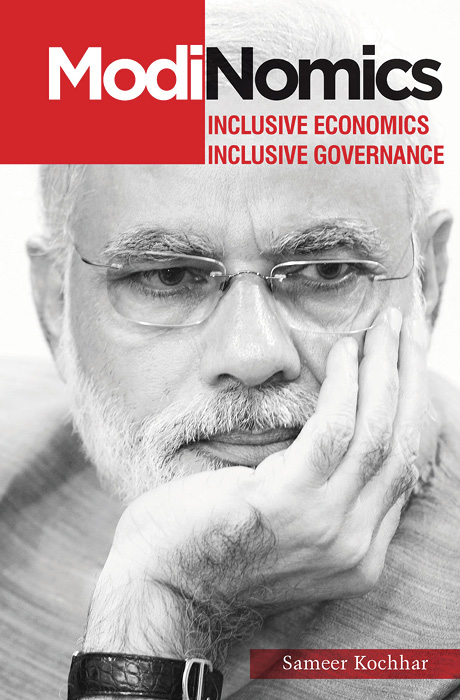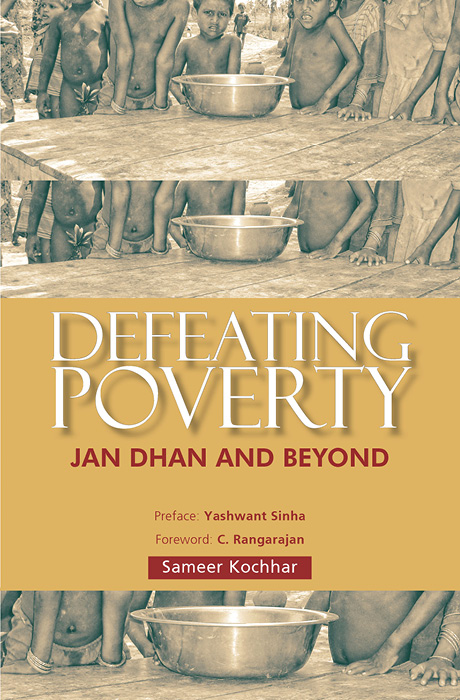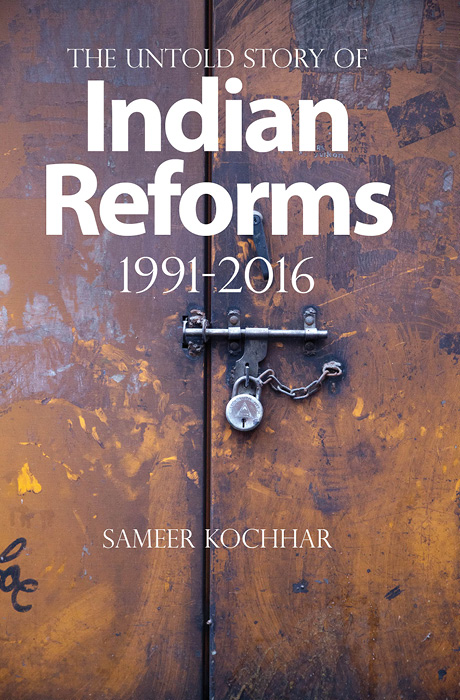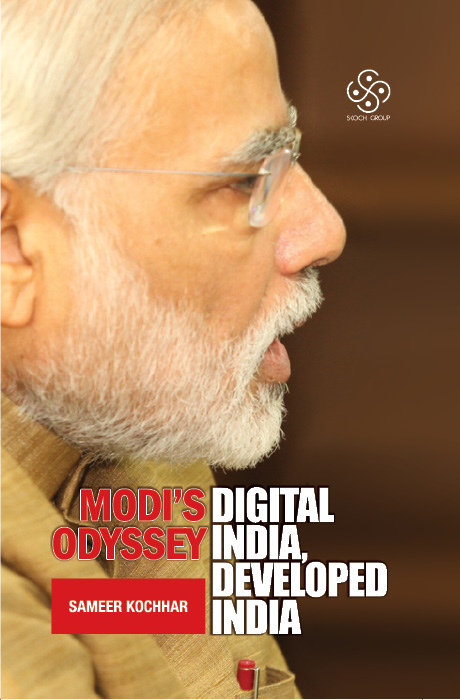Policy-Making for Indian Planning
Author: Sameer Kochhar
Pages: 306
ISSN: 978-81-7188-922-8
Language: English
Edition: First
Pub. Year: 2012
A key figure in India’s economic reforms from the early 1980s onwards, ..Montek Singh Ahluwalia’s fingerprints can be found in policies from economics to education reform, and he has been a driving force in the liberalisation programme of the past 20 years or more. The Oxford-educated economist spent 11 years with the World Bank in Washington before returning to India in 1979 to work as an economic adviser to the government. His commitment to poverty alleviation and inclusive growth can be found in his early writings and as Deputy Chairman of the Planning Commission, he has managed to translate this into the country’s Plan process. He is also the harbinger of partici-patory planning wherein for the first time Planning Commission started inviting suggestions and feedback for the 12th Five Year Plan. This festschrift comprises a range of essays covering different drivers of economic growth and development, providing not only an insight into policymaking and its impact, but also directions for India if it is to become a major player in the global economy. This book is a must-read for students of development economics and political economy and is highly recommended for graduate students, academics and professionals interested in economic issues of developing countries.
- Foreword – C. Rangarajan
- Preface – P. Chidambaram
- Introduction – Sameer Kochhar
- Policymaking for Indian Planning: The Role of Individuals and Ideas – Meghnad Desai
- Planning in a Liberalised Economy – Nitin Desai
- Centre-State Relations: The Forward Path – N.K. Singh
- Governance: History, Contemporary Debate and Practice – Parthasarathi Shome
- Why for a Class of Bribes the Act of Giving a Bribe should be Treated as Legal – Kaushik Basu
- Does Kuznets Still Matter? – Ravi Kanbur
- Poverty in India: Facts and Interpretation – Surjit S. Bhalla
- Innovation and Public Information Infrastructure – Sam Pitroda
- Urbanisation and Employment: The Double Headed Janus – Hari Sankaran
- SEWA: Towards Self-Reliance and Empowerment – Sameer Kochhar and Gursharan Dhanjal
- Central Bank Governance Issues: Some RBI Perspectives – D. Subbarao
- Future of Financial System: Emerging Issues – Y.V. Reddy
- Global Imbalances: Policies, Structure and Finance – Roberto Zagha
- Currency Wars Again?: Can Global Policies ever be Coordinated? – Raghuram Rajan
Kaushik Basu is Chief Economic Advisor, Ministry of Finance, India, and C. Marks Professor, Department of Economics, Cornell University. He was earlier Director, Center for Analytic Economics at Cornell. He is a member of the Board of Directors of the Exim Bank of India; and is president of the international Human Development and Capabilities Association. He has earlier been Professor of Economics at the Delhi School of Economics. In 1992, he founded the Centre for Development Economics in Delhi and was its first Executive Director. Educated in Kolkata, Delhi and London, Basu received his PhD from the London School of Economics in 1976. In November 2010, he was conferred D.Litt (Honoris Causa) by Lucknow University. He has been Visiting Professor at Harvard University, MIT and Princeton University, and Distinguished Visitor at the London School of Economics. He is Editor of Social Choice and Welfare, and served on the Editorial Boards of the Journal of Economic Perspectives, Journal of Development Economics and World Bank Economic Review. A Fellow of the Econometric Society, he has published scientific papers in the areas of development economics, industrial organisation, game theory and welfare economics. His books include: Prelude to Political Economy: A Study of the Social and Political Foundations of Economics (2000) and Beyond the Invisible Hand: Groundwork for a New Economics (2011). The latter is being translated into Chinese, Spanish and Italian. In May 2008, he was awarded one of India’s highest civilian awards, the Padma Bhushan, by the President of India.
Surjit S. Bhalla obtained his PhD in Economics from Princeton University. He has worked as a research economist at Rand Corporation, Brookings Institution, the World Bank and The Policy Group; as a proprietary trader/strategist/portfolio manager at the World Bank, Goldman Sachs, Deutsche Bank and Oxus Investments. Presently, he is Chairman of Oxus Investments, a New Delhi based ‘hedge fund’ and emerging markets advisory firm. Dr Bhalla has served on several committees of the Government of India. He is author of several academic articles as well as three books on globalisation and its effects on the world economy: Imagine There’s No Country: Poverty, Inequality, and Growth in the Era of Globalization (2002); Devaluing Your Way to Prosperity: Misaligned Currencies and Their Growth Consequences (forthcoming, 2010) and Second Among Equals: The Middle Class Kingdoms of China and India (2007, also forthcoming, 2010).
Lord Meghnad Jagdishchandra Desai studied at the University of Bombay, and obtained his PhD at the University of Pennsylvania. On 30th April 1991, he was created Lord Desai of St Clement Danes. Lord Desai has taught at the London School of Economics since 1965, he was made a Professor of Economics in 1983 and he established the Centre for the Study of Global Governance in 1992. His publications include: A Basic Income Proposal in The State of the Future (1998); What should be India’s Economic Priorities in a Globalising World (1999); Foreign Investment and Economic Development in Capital Regulation: For and Against (1999); Well Being or Welfare? in Public Policy for the 21st Century: Social and Economic Essays in Memory of Henry Neuberger, (N. Fraser and J. Hills (eds.), 2000); The Possibility of Deglobalisation in Globalisation, Inequality and Social Capital, (W. Dolfsma and C. Dennreuther (eds.), 2001); Marx’s Revenge and The Resurgence of Capitalism and the Death of Statist Socialism (2002). His latest publication is entitled The Rediscovery of India (2011). His research interests include economics, international political economy, economic history, South Asian studies and globalisation.
Nitin Desai, a graduate of London School of Economics (LSE), taught economics at two UK universities, worked briefly in the private sector, had a long stint as a government official in India and then joined the UN in 1990. In India he joined the Planning Commission in 1973, around the same time as Dr Vijay Kelkar, and worked there till 1988. Later he joined the Ministry of Finance as the Chief Economic Advisor (1988-1990). In the UN, which he joined in 1990, he was Under Secretary General for Economic and Social Affairs. After his retirement, he has been involved in a variety of public policy activities nationally and internationally. He is a member of the National Security Advisory Board and the Prime Minister’s Council on Climate Change. He is a Distinguished Fellow of TERI and is an Honorary Fellow of the LSE. He writes a monthly column in the Business Standard.
Gursharan Dhanjal, MA, M.Phil, PhD from Delhi University and an expert in strategic affairs, is Editor & COO, Skoch Group. He is also Editor of Inclusion—a quarterly publication that focusses on development and inclusive growth issues. He has over 20 years of working experience ranging from academics to research and business journalism to consulting. He started his career as a Lecturer and taught at Delhi University for five years before joining Asia Business News (India)—Dow Jones, a premier broadcaster of business and financial news during mid-90s. He also worked for CNBC for over three years during the late 90s. He has led various research projects and field studies in financial inclusion, e-governance and ICT for development that included traversing across the country, collecting citizen voices for over eight years now. He also leads the video case study projects. His areas of expertise include research and rich media content. A prolific writer, Dr Dhanjal has contributed over 200 columns in leading national dailies and apart from several research papers in several journals of repute in addition to authoring a widely acclaimed book entitled Tarapur: The Politics of Nuclear Age. He has recently published another book in association with Sameer Kochhar entitled Infrastructure and Governance. He has contributed numerous papers that have been published in various books. He is member of the Working Group on ICT in Higher Education constituted by Planning Commission for the Twelfth Five Year Plan. He is a regular speaker at various public fora and institutions including IIT-Delhi and Delhi University where he is also a visiting faculty. He is also Member, Course Preparation Team for Master’s Programme, School of Social Sciences, Indira Gandhi National Open University. His research interests include, nuclear non-proliferation, political systems, ICT for development, financial inclusion, education, public administration, conflict resolution and peace building.
Ravi Kanbur is T.H. Lee Professor of World Affairs, International Professor of Applied Economics and Management, and Professor of Economics at Cornell University. He holds a Bachelor’s degree in Economics from the University of Cambridge and a Doctorate in Economics from the University of Oxford. He has taught at the Universities of Oxford, Cambridge, Essex, Warwick, Princeton and Columbia. His vita lists over 200 publications, including in the leading economics journals such as American Economic Review, Journal of Political Economy, Review of Economic Studies, Journal of Economic Theory, and Economic Journal. Ravi Kanbur has served on the senior staff of the World Bank, including as Chief Economist of the African Region and Principal Adviser to the Chief Economist of the World Bank. He has also served as Director of the World Bank’s World Development Report. The honours he has received include the Quality of Research Discovery Award of the American Agricultural Economics Association and an Honorary Professorship at the University of Warwick.
Sam Pitroda is an internationally respected development thinker, policymaker, telecom inventor and entrepreneur who has spent over four decades in information and communications technology and related human and national developments initiatives. Credited with having laid the foundation of India’s technology and telecommunications revolution in the 1980s, Mr Pitroda has been a leading campaigner to help bridge the global digital divide. During his tenure as Advisor to Prime Minister Rajiv Gandhi in the 1980s, Pitroda headed six technology missions related to telecommunications, water, literacy, immunisation, dairy and oil seeds. He was also the founder and first chairman of India’s Telecom Commission. In these roles, he helped revolutionise India’s development policies and philosophies with a focus on access to technology as the key to social change. He was Chairman of India’s National Knowledge Commission (2005-2009), an advisory body to the Prime Minister of India, set up to provide a blueprint for reform of the knowledge related institutions and infrastructure in the country. He is currently Adviser to the Prime Minister of India on Public Information Infrastructure & Innovations and has undertaken the ambitious task of providing a plan for creating digital infrastructure in the country for enhancing governance and improving delivery of public services. He is also the Chairman of the National Innovation Council (NIC), which is working on several initiatives to boost innovation performance in the country. He is also heading the Expert Group for Modernisation of Indian Railways constituted by the Ministry of Railways. He is also the Chairman of the Smart Grid Task Force set up under the aegis of the Ministry of Power, Government of India. He has also been appointed as one of the founding Commissioners of the United Nations Broadband Commission for Digital Development. He holds close to 100 worldwide patents and has published and lectured widely in the US, Europe, Latin America and Asia.
Raghuram Rajan is the Eric J. Gleacher Distinguished Service Professor of Finance at the University of Chicago’s Graduate School of Business. Dr Rajan is also currently an economic advisor to the Prime Minister of India. Prior to resuming teaching in 2007, he was the Economic Counsellor and Director of Research at the International Monetary Fund (from 2003). Since then, he has chaired the Indian government’s Committee on Financial Sector Reforms, which submitted its report in September 2008. Dr Rajan’s research interests are in banking, corporate finance, and economic development, especially the role finance plays in it. His 2003 book (with Luigi Zingales) entitled Saving Capitalism from the Capitalists was followed by Fault Lines: How Hidden Fractures Still Threaten the World Economy, which was awarded the Financial Times-Goldman Sachs prize for best business book in 2010. He is the President of the American Finance Association and a member of the American Academy of Arts and Sciences. In January 2003, the American Finance Association awarded Dr Rajan the inaugural Fischer Black Prize, given every two years to the financial economist under age 40 who has made the most significant contribution to the theory and practice of finance.
Yaga Venugopal Reddy was Governor, Reserve Bank of India, from 2003 to 2008. Subsequently, he was Member of the UN Commission of Experts to the President of the UN General Assembly on Reforms of International Monetary and Financial System. He is currently Professor Emeritus, University of Hyderabad, and Distinguished Professor, Indian Institute of Technology, Madras. He is also Honorary Fellow of the London School of Economics and Political Science. He is a Member of an informal international group of prominent persons on International Monetary Reforms, and is also on the Advisory Group of eminent persons to advise the Finance Minister of India on G-20 issues. He was Deputy Governor, Reserve Bank of India, for six years. Prior to being the Governor, he was Executive Director for India, Sri Lanka, Bangladesh and Bhutan at the International Monetary Fund since August 2002. Formerly, he was Secretary, Ministry of Finance, and Additional Secretary, Ministry of Commerce in the Government of India. He served Government of Andhra Pradesh, India in several capacities including Principal Secretary and Secretary—Finance and Planning, Collector and District Magistrate etc. He was also advisor in World Bank. Dr Reddy was honoured with the Padma Vibhushan Award in 2010. His book India and the Global Financial Crisis: Managing Money and Finance was among the best sellers in India (Orient Blackswan, 2009). His most recent publication is titled Global Crisis, Recession and Uneven Recovery (2011).
Hari Sankaran is Vice Chairman & Managing Director of Infrastructure Leasing & Financial Services Limited (IL&FS). After completing his Masters in Economics from the London School of Economics (LSE), Sankaran developed a career in the areas of project finance, infrastructure development and management, regulation and public policy. His primary interest has been to understand the relationship between communities, infrastructure development and economic growth. He has contributed several papers to some of the well-acclaimed books. Some of these include Building from the Bottom: Infrastructure and Poverty Alleviation (2010) and, India on the Growth Turnpike (2010)—both edited by Sameer Kochhar. He was recently conferred the Skoch Challenger Award for his contributions to education sector and infrastructure development.
Parthasarathi Shome is Director & Chief Executive, Indian Council for Research on International Economic Relations (ICRIER), New Delhi. He was Chief Economist, Her Majesty’s Revenue & Customs (HMRC), United Kingdom (2008-2011) and Adviser to Indian Finance Minister (2004-2008). He served at the IMF (1983-2004) in various capacities, including as Chief of Tax Policy (1992-1995), and Director, IMF Singapore Institute (2001-2003). He was RBI Chair, ICRIER (1999-2001) and Director, National Institute of Public Finance and Policy (1995-1997), and Professor of Economics at American University Washington D.C. (1975-1983). His books are from Oxford University Press, Routledge and IMF. He has published in the Journal of Economic Theory, Journal of Public Economics, Oxford Economic Papers, IMF Staff Papers, and other international and national journals of Argentina, the Basque Region, India, Japan, Malaysia, the Philippines, Singapore and the United States. He has given fiscal technical assistance to over 30 countries in Africa, Asia, Europe and Latin America. He chaired India’s Ninth Five Year Plan and Tenth Five Year Plan Task Forces on tax policy and administration. In 2000, he was awarded the highest civilian honour of the Brazilian government, ‘Commander of the Order of the Southern Cross’, for his contributions to Brazilian tax reform. He did his PhD from Southern Methodist University in 1975. For his thesis on the burden of the corporation income tax, he received the National Tax Association of America award as an ‘outstanding student of taxation and public finance’. He has Masters degrees from University of Rochester (1973) and Delhi University (1972). His BA Honours is from Calcutta University (1970) and high school matriculation from Madras University (1966).
N.K. Singh is a renowned politician, economist and former top bureaucrat. Presently he is a member of the Rajya Sabha from the state of Bihar. He serves on the Parliamentary Committee on Human Resource Development, the Committee on MPs Local Area Development Scheme, the Committee on Public Undertakings, the Consultative Committee on Finance, the Committee on Rules, the House Committee and the Parliamentary Forum on Global Warming and Climate Change. He has been among the country’s top bureaucrats and handled important portfolios such as India’s Revenue Secretary, Member of the Planning Commission, and Secretary to the Prime Minister. Mr Singh is on the governing bodies of research organisations like the Indian Council for Research on International Economic Relations (ICRIER), the International Management Institute (IMI) and the National Institute of Fashion Technology (NIFT). He has a wide range of national and international experience having interacted closely with multilateral organisations like World Bank, IMF, ADB, UNCTAD, GATT, WTO, UNDP and OECD. Additionally, he has taken up various international responsibilities in the UN, World Economic Forum, Indian Embassy (Tokyo), IMF etc. N.K. Singh has a Master’s Degree in Economics and was teaching Economics at the prestigious St. Stephen’s College, Delhi prior to joining the Civil Service. He has lectured widely at eminent universities and is currently also Short Term Senior Visiting Fellow at the University of Stanford. He has authored two books entitled, Politics of Change and Not by Reason Alone and has contributed several articles in the field of economics to leading Indian dailies, The Financial Express, Hindustan and The Indian Express. He is fond of photography, horticulture and Indian Classical music.
Duvvuri Subbarao assumed office as the 22nd Governor of the Reserve Bank of India on 5 September 2008. Prior to this appointment, Dr Subbarao served as Finance Secretary to the Government of India from April 2007 to September 2008 and as Secretary to the Prime Minister’s Economic Advisory Council from March 2005 to March 2007. As a member of the Indian Administrative Service (IAS), Dr Subbarao has been a career civil servant. Over the years of 1988-1998, he worked in various positions in State government of Andhra Pradesh and Government of India. Dr Subbarao was a Lead Economist in the World Bank (1999-2004), where he also task managed a flagship study on decentralisation across major East Asian countries which was acknowledged as innovative policy work. He received BSc (Hons) in Physics from the Indian Institute of Technology, Kharagpur and MSc in Physics from the Indian Institute of Technology, Kanpur. Subsequent to joining the civil service, he received an MS in Economics from Ohio State University (1978) and was a Humphrey Fellow studying public finance at MIT during 1982-83. He earned his PhD in Economics from Andhra University (1998). Dr Subbarao maintains a strong commitment to academic pursuits, and has written and lectured extensively on issues in public finance, decentralisation and political economy of reforms.
Roberto Zagha, a Brazilian national, is currently the World Bank Country Director for India. Prior to this assignment, he was a Senior Advisor in the World Bank Vice Presidency in charge of economic policies and poverty reduction strategies. His most recent work was Secretary of the Commission on Growth and Development which recently published The Growth Report. His previous work consisted of a review of the growth experience of the 1990s—a two-year programme whose results are summarised in three reports which review growth experiences, explore the current thinking on growth and the role of policies in growth strategies. Previous assignments in the Bank include Director for South Asia for the Bank department in charge of economic policies and poverty reduction in South Asia, Lead Economist for India, and several assignments in Central and East Africa, India, Sri Lanka, Argentina and Bolivia. He also was part of the core team for the World Development Report of 1991. Prior to joining the Bank, he taught at the University of São Paulo, Brazil, and worked as senior economist in the Economic Research Institute associated to the university in areas related to taxation and fiscal policies.
Sameer Kochhar, Chairman of SKOCH Group, a reforms historian. is a passionate advocate of social, financial and digital inclusion, In 1997, after spending 15 years in the corporate world, he decided to follow his inner calling and become a development thinker. Ever since, he single-handedly applied himself to the rigours of self-education, academic research and fiel tours. The SKOCH Group — which has a think tank, media and consultancy arm — was established as part of this endeavor- His expert opinion is sought by the government. In Kochhar's thinking, writings, and activities, his profound admiration for India's economic reforms — and in extension, those outstanding personalities who Strive to make these reforms more meaningful and broad-based — comes out clear and unambiguous. He is the author of highly acclaimed ModiNomics: Inclusive Economics Inclusive Growth (2014) and The Untold story of Indian Reforms (2016) in addition to fourteen other volumes.
